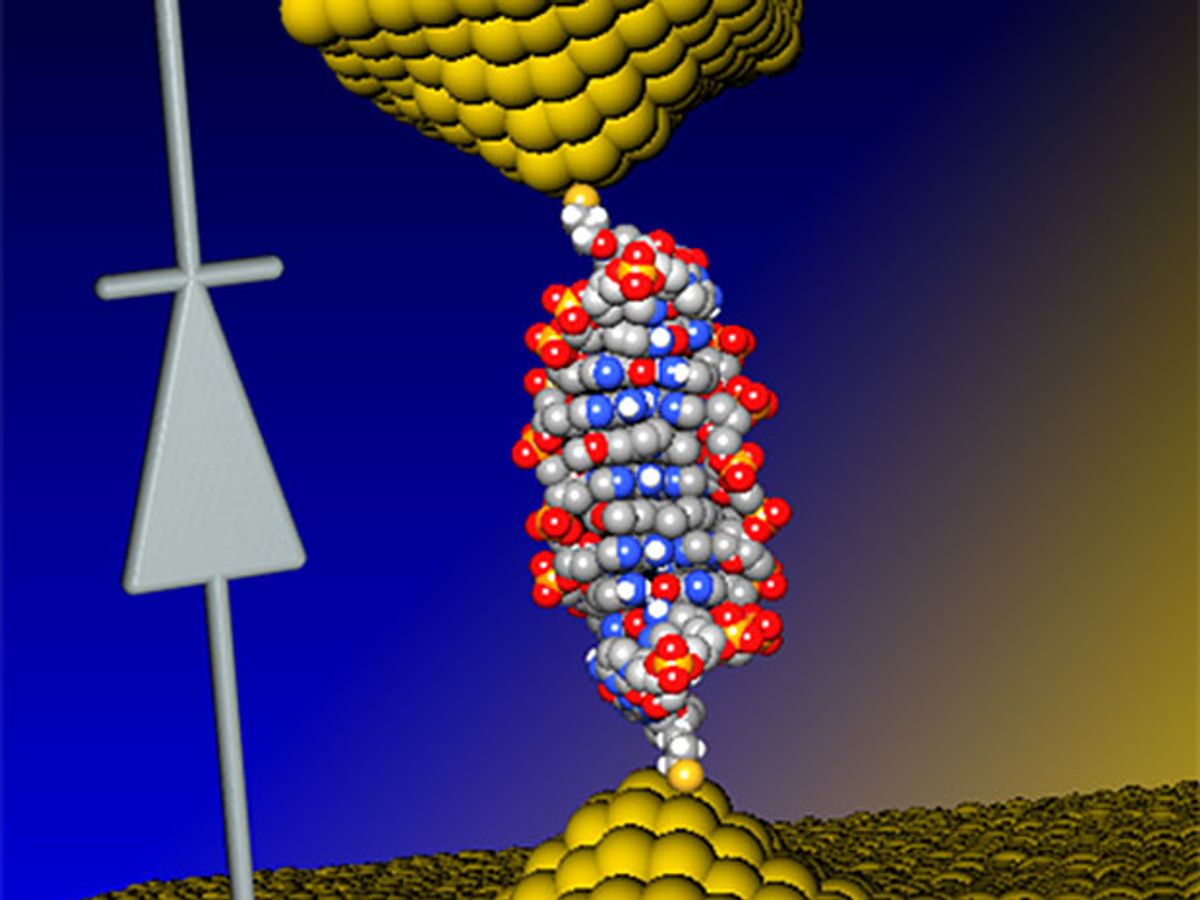
Scientists have now created what they say is the world's smallest diode, one the size of a single (rather short) molecule of a DNA. This work could help spur development of DNA components for molecular electronics, its creators claim.
Diodes—also known as rectifiers—allow electric current to flow in just one direction. More than 40 years ago, scientists proposed miniaturizing diodes and other electronic components down to the size of single molecules, an idea that eventually helped give birth to the field of molecular electronics, which could help push computing beyond the limits of conventional silicon devices. [See “Whatever Happened to the Molecular Computer?” IEEE Spectrum, October 2015]
Scientists at the University of Georgia and Ben-Gurion University of the Negev in Israel used DNA to fashion the new diode. The breakthroughs in genetics developed to sequence the human genome have now made it relatively easy to precisely manufacture and manipulate DNA, which makes the molecule a leading candidate for use in molecular electronics.
DNA’s double helix is made of paired strands of molecules known as bases. The new diode is only 11 base pairs long. (Typically, DNA is 0.34 nanometers long per base pair.)
By itself, DNA does not act like a diode. However, when the researchers inserted two small molecules of coralyne into certain points within DNA and applied 1.1 volts to the complex, electric current flowed through the DNA diode 15 times as strongly in one direction than the other. Theoretical models of the diode revealed that this rectification resulted from the way the lopsided distributed of electrons coralyne causes within the DNA.
The scientists suggest that they can further improve their DNA diode to achieve functional molecular devices. They detailed their findings todayin the journal Nature Chemistry.
Charles Q. Choi is a science reporter who contributes regularly to IEEE Spectrum. He has written for Scientific American, The New York Times, Wired, and Science, among others.



